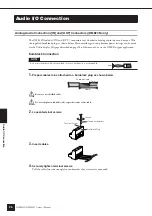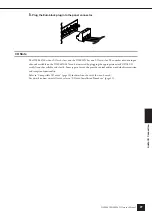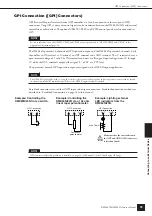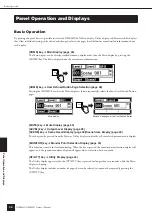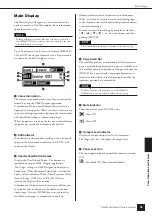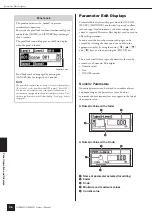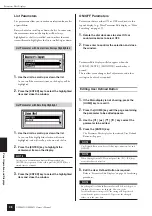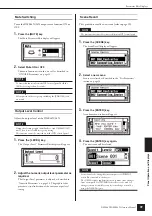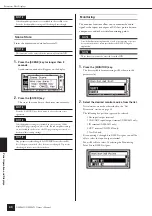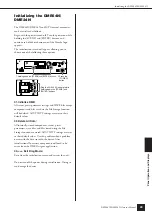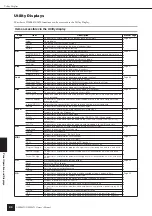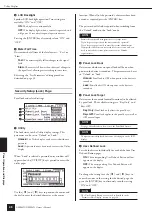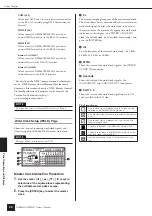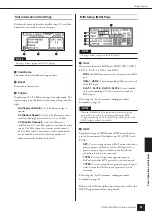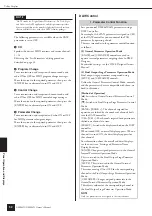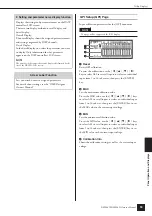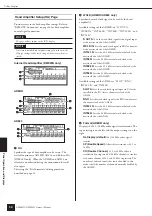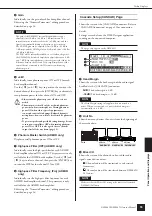
P
anel Operation and Displa
ys
Parameter Edit Displays
DME64N/DME24N Owner’s Manual
40
Scene Store
Stores the current scene data for later recall.
1.
Press the [SCENE] key for longer than 2
seconds.
A confirmation window will appear on the display.
2.
Press the [ENTER] key.
This stores the scene data in the current scene memory.
Monitoring
The monitor functions allow you to monitor the audio
signal at the inputs or outputs of I/O slots, points between
components, and other critical monitoring points.
1.
Press the [MONITOR] key.
The slots available for monitoring will be shown in the
parameter list.
2.
Select the desired monitor source from the list.
List selections are made as described in the “List
Parameters” section on page 38.
The following five position types can be selected:
1 Slot input/output terminal
2 CASCADE input/output terminal (DME64N only)
3 IN terminal (DME24N only)
4 OUT terminal (DME24N only)
5 User Defined
By connecting 1 through 4 in DME Designer, you will be
able to select the input/output terminal.
You will be able to select 5 by editing the Monitoring
Point List in DME Designer.
NOTE
If head amplifier parameters are included in the recalled scene
data, the head amplifier settings will be changed accordingly.
NOTE
This function can be accessed in the same way from the ICP1.
NOTE
Press the [CANCEL] key if you want to abort the scene store
operation.
NOTE
If head amplifier settings are included in the scene the Utility
display HA page settings are also stored. If head amplifier settings
are not included in the scene, the HA page settings are stored as
head amplifier startup settings.
NOTE
Any parameter values changed by GPI/MIDI controllers will be
lost if the power is turned off or if scenes are changed. To preserve
the changed values, store the scene data.
NOTE
User-defined monitoring functions, such as monitoring at points
between components, must specified via the DME Designer
application.
NOTE
These functions cannot be accessed from the ICP1.
Summary of Contents for DME64N - Pro Audio
Page 1: ......

